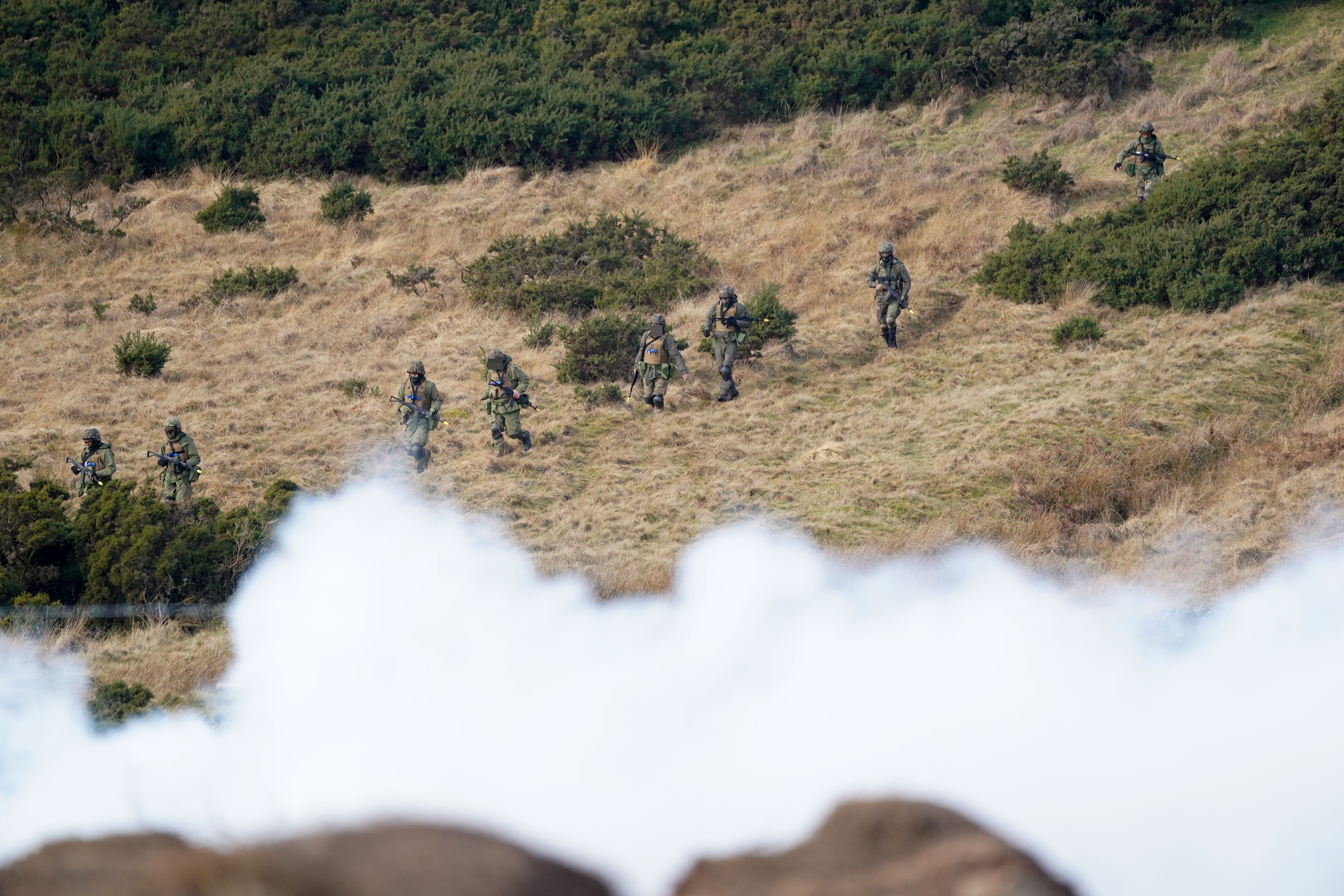UK has helped train 10,000 Ukrainian volunteer soldiers
The recruits have little or no military experience and are given similar training to what British Army reserves would receive.

Your support helps us to tell the story
From reproductive rights to climate change to Big Tech, The Independent is on the ground when the story is developing. Whether it's investigating the financials of Elon Musk's pro-Trump PAC or producing our latest documentary, 'The A Word', which shines a light on the American women fighting for reproductive rights, we know how important it is to parse out the facts from the messaging.
At such a critical moment in US history, we need reporters on the ground. Your donation allows us to keep sending journalists to speak to both sides of the story.
The Independent is trusted by Americans across the entire political spectrum. And unlike many other quality news outlets, we choose not to lock Americans out of our reporting and analysis with paywalls. We believe quality journalism should be available to everyone, paid for by those who can afford it.
Your support makes all the difference.As the anniversary of the Russian invasion of Ukraine approaches, the UK has announced it has helped to train 10,000 Ukrainian volunteer soldiers.
Operation Interflex sees the recruits undergo an intense five-week programme learning the international laws of armed conflict, trench warfare, urban fighting, weapons handling and firing, medical training and dealing with explosives.
The programme includes international trainers as well as British Army experts at sites across the UK.
The Ministry of Defence invited the media to observe the operation at an undisclosed remote location in the north of England.
The course seeks to harness the Ukrainians’ “offensive spirit” and give them the skills to fight effectively and survive, a senior officer said.
The recruits have little or no military experience and are given similar training to what British Army reserves would receive.
But the course has been tweaked to reflect the reality of the war in Ukraine and has direct input from Armed Forces of Ukraine (AFU) soldiers who have fought there.
The British forces working on the training programme will have a humble approach to the recruits and were looking to learn from the experienced Ukrainian soldiers who were also working on the exercise, the senior officer said.
Platoon after platoon of recruits battled their way through a trench warfare exercise where a series of trenches were dug into the northern moorland and defended.
Smoke grenades and loud bangs heightened the reality of the exercise, which culminated in a planned attack on a wood, as hundreds of blank rounds were fired.
It was a reminder that these recruits will be facing real bullets when they return to Ukraine.
Artem, 42, formerly working in logistics in Odessa, was impressed and thankful for the international trainers’ efforts.
He said: “They really care for us very much. They have a very high level of military expertise.
“Before the full-scale invasion I didn’t have any military experience. Me and my brothers in arms are more than sure this will help us to fulfil the combat tasks and it will give us more strength and resilience on the battlefield.”
Corporal Shaun Carter of the Princess of Wales Royal Regiment, normally based in Woolwich, said of the exercises: “We try to make it as realistic as possible, as close to what they will be up against in Ukraine.
“We call it ‘train hard, fight easy’. We have trained 10,000 last year, we want to do another 20,000 this year.
“They are extremely motivated.
“When they turn up they are civilians and in a short number of weeks they have gone from civilian to soldier.
“We get to know them, we learn from them, so it’s a two-way street. There’s a lot of admiration from us.
The corporal was pleased with the way the recruits had picked up combat skills in the short course, saying: “They have come on leaps and bounds.”
Other recruits were undergoing training on urban warfare and learning from Swedish soldiers how to clear buildings.
Instructor Rasmus, a Swedish army captain who preferred not to give his surname, said the Ukrainians were highly motivated.
“It is hard work being a soldier,” he said.
“They are tired but keep going with a good spirit.
“We know this is for real and they will use this training in real situations and we are giving them the best training we can.
“They are progressing so well so they are fit to fight back in Ukraine.”